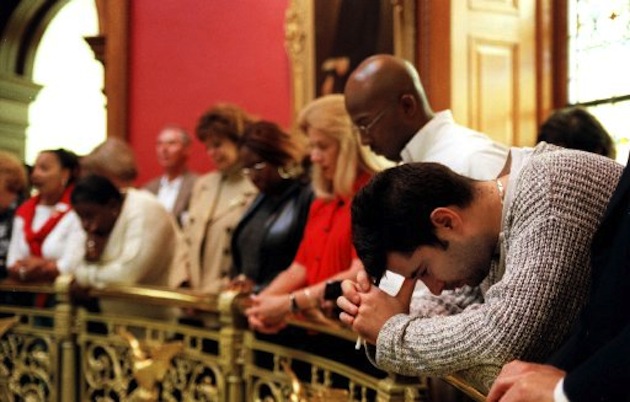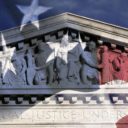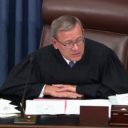

Federal officials have already refused to abide by the Supreme Court ruling, which found opening prayer bans are unconstitutional.
Apparently federal officials missed the memo that the Supreme Court ruled their attempts to implement opening prayers bans are unconstitutional.
The Mayor of Carteret, New Jersey, Mayor Dan Reiman canceled the town’s naturalization ceremony, which was intended celebrate the new citizenship of 30 people, after employees of the U.S. Citizenship and Immigration Services would not allow the event to begin with a prayer.
“I told them (employees of the U.S. Citizenship and Immigration Services) they’re no longer allowed to use city hall,” he said.
According to the Star-Ledger, Carteret Mayor Daniel Reiman had assured U.S. Citizenship and Immigration Services officials that the prayer leading Saturday’s ceremony would be nondenominational.
“They refused to budge on that,” Mayor Reiman said.
The Supreme Court just ruled on May 5 that opening prayer at town council meetings do not violate the Constitution even if they routinely stress Christianity. The ruling was not only a victory for the town of Greece, N.Y., which is located just outside of Rochester, but Americans of faith, in general.
Yet, ironically, Mayor Reiman and immigration officials both cited the high court’s opinion for their actions.
Reiman, who was elected to office in 2002, said the court’s decision is proof that he should be able to open any event with a prayer. He issued a statement Friday saying it is borough policy to open all borough events with a prayer and a moment of silence.
The citizenship agency argued that the ruling did not mandate federal agencies to include prayers in ceremonies. It cherry-picked a small excerpt of the justices’ ruling that referred to the “Pledge of Allegiance” as one of the traditions that “lend gravity to public proceedings.”
Katie Tichacek Kaplan, a spokeswoman for the immigration agency, told the Associated Press that it’s a long-standing policy to make sure naturalization ceremonies are “conducted in a meaningful manner which is welcoming and inclusive and excludes political, commercial and religious statements.”
But that is not completely in line with precedent relied upon by the justices in their ruling, nor an accurate depiction of the language written in the high court’s decision. The entire idea of the First Amendment protection is to defer these decisions to local officials, just as long as they are rooted in long-standing tradition.
“The prayer opportunity is evaluated against the backdrop of a historical practice showing that prayer has become part of the Nation’s heritage and tradition,” the majority wrote in the opinion. “It is presumed that the reasonable observer is acquainted with this tradition and understands that its purposes are to lend gravity to public proceedings and to acknowledge the place religion holds in the lives of many private citizens.”
Thomas Jefferson, in a letter to the Danbury Baptist Church explaining his proper role as President, wrote:
In matters of religion, I have considered that its free exercise is placed by the Constitution independent of the powers of the general [federal] government. I have therefore undertaken on no occasion to prescribe the religious exercises suited to it; but have left them, as the Constitution found them, under the direction and discipline of state or church authorities acknowledged by the several religious societies.
In other words, local officials and states hold the power to determine was will be their public practices, but this would be later distorted to interpret and “wall of separation” between church and state. However, the high court in the 1980s and now in the recent decision has clarified this disagreement.
Reiman said now and at the time that the prayer was and would have been non-denominational. He added that the immigration service can “host its godless ceremony someplace else.”
The event was subsequently moved to Newark, New Jersey, a liberal bastion.
Reiman cited the CIS website, which states that new citizens must recite an oath that contains the phrase, “so help me God,” as well as the “Pledge of Allegiance,” which includes the phrase “under God.”
The website says that reciting the pledge and oath completes the process of becoming a U.S. citizen.
Click to read the Naturalization Oath of Allegiance to the United States of America.







